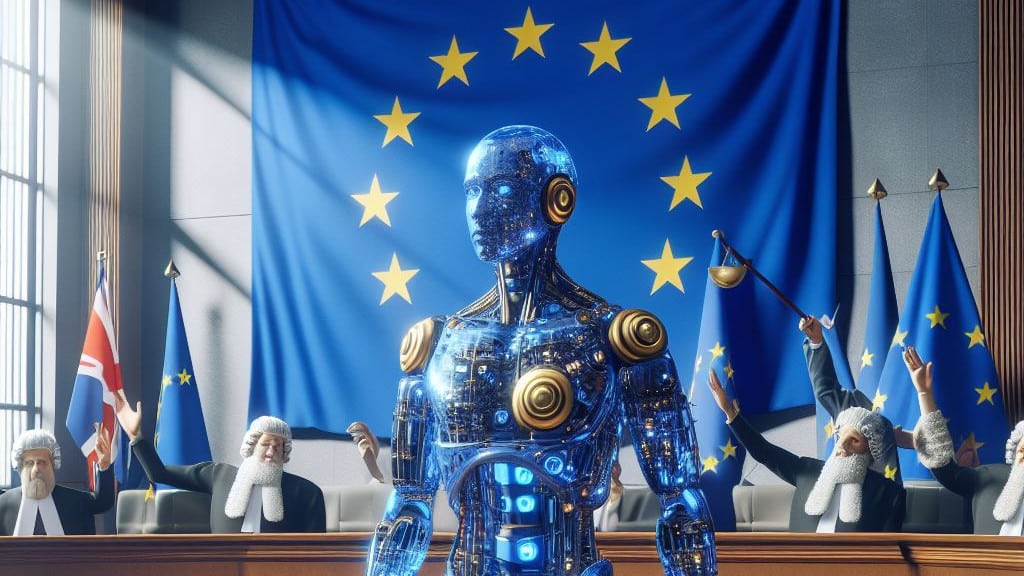‘EU’s AI Act Elicits Both Concerns and Optimism in Tech Industry,’ claims Raffi Krikorian, CTO of Emerson Collective


In Brief
Emerson Collective’s CTO Raffi Krikorian expressed concerns regarding the approach taken by EU’s AI Act, and emphasized risk mitigation.

Early this month, European Union policymakers forged a political agreement to establish the worldwide standard for governing artificial intelligence (AI) and came out with the AI Act – a legislative milestone aimed at regulating AI with a focus on its potential for harm.
However, the European Parliament will now vote on the proposed AI Act early next year, and the legislation is likely to come into force by 2025. This demands an evaluation of its immediate and long-term impacts on AI development and deployment, and to have perspectives on the Act’s alignment with global AI ethics standards.
In a conversation with Metaverse Post — Raffi Krikorian, chief technology officer of Emerson Collective and host of the tech podcast Technically Optimistic expressed his concerns regarding the current approach taken by the EU, emphasizing a preoccupation with risk mitigation rather than adopting a principles-based methodology.
The focus here seems predominantly on downside protection without adequate attention to investments and development, a viewpoint that aligns with President Macron’s recent negative statements on the matter.
“I’m optimistic, however, that developers will figure out how to manage and mitigate this. But let’s not kid ourselves – this is a real hurdle and work will need to be done. I can see a world where European developers get bogged down in this for a bit, while the rest of the world speeds ahead. And maybe that’s the right thing to do – but it’s a real trade-off,” said Krikorian.
“Now, the interesting thing to see is how this impacts non-European companies as they try to deploy in Europe,” he added.
The EU AI Act, though not yet finalized, classifies AI systems into Unacceptable, High Risk, Limited Risk and Minimal Risk —- which is considered as the right step forward.
According to Krikorian, “The real problem, however, is the haziness around how it’s all written. As currently written, it’s unclear what does not get covered by this act. It says that almost all software, depending on your interpretation of it, is covered by this. And that lack of clarity, and that ambiguity, seems bad.”
Under the EU AI Act, there are big penalties at play, too. They range from 1.5% to 7% of a firm’s global sales turnover, depending on its size and the severity of the offense.
Anticipating the Impact of the EU AI Act on Tech Giants
Comparing the EU AI Act with President Biden’s recent AI Executive Order reveals a key difference in regulatory approaches. The U.S. order employs the federal government’s purchasing power to encourage transparency, while the EU AI Act proposes enforceable fines for compliance.
“However, stepping back – the real difference is that the White House EO attempts to influence through the fact that the federal government will not pay for systems that don’t match the standard, whereas the EU AI Act has real enforceable fines. Now, the EU AI Act hasn’t become law yet, but, when it does, I predict it will probably have a bigger impact,” Krikorian told Metaverse Post.
He added that the EU AI Act strikes a balance between AI innovation and ethics by defining clear boundaries. Drawing parallels with U.S. regulations like SOC-2, it sets a standard for responsible AI development. This could give rise to a new industry focusing on EU AI Act compliance, mirroring how companies like Stripe handle credit card data.
“This approach aims to facilitate innovation by allowing tech companies to concentrate on their core strengths while ensuring ethical practices within defined parameters,” said Krikorian.
Lastly, it will be important to understand the effectiveness of the EU AI Act. To that end, Krikoriam rightly highlighted the EU’s track record of litigating against major tech companies for privacy and data violations.
“EU’s demonstrated willingness to pursue legal action serves as a strong incentive for tech companies to proactively ensure compliance with the forthcoming regulations. The anticipation of potential legal consequences appears to be a driving force in motivating tech entities to navigate the intricacies of the AI Act,” Krikorian told Metaverse Post.
Disclaimer
In line with the Trust Project guidelines, please note that the information provided on this page is not intended to be and should not be interpreted as legal, tax, investment, financial, or any other form of advice. It is important to only invest what you can afford to lose and to seek independent financial advice if you have any doubts. For further information, we suggest referring to the terms and conditions as well as the help and support pages provided by the issuer or advertiser. MetaversePost is committed to accurate, unbiased reporting, but market conditions are subject to change without notice.
About The Author
Kumar is an experienced Tech Journalist with a specialization in the dynamic intersections of AI/ML, marketing technology, and emerging fields such as crypto, blockchain, and NFTs. With over 3 years of experience in the industry, Kumar has established a proven track record in crafting compelling narratives, conducting insightful interviews, and delivering comprehensive insights. Kumar's expertise lies in producing high-impact content, including articles, reports, and research publications for prominent industry platforms. With a unique skill set that combines technical knowledge and storytelling, Kumar excels at communicating complex technological concepts to diverse audiences in a clear and engaging manner.
More articles

Kumar is an experienced Tech Journalist with a specialization in the dynamic intersections of AI/ML, marketing technology, and emerging fields such as crypto, blockchain, and NFTs. With over 3 years of experience in the industry, Kumar has established a proven track record in crafting compelling narratives, conducting insightful interviews, and delivering comprehensive insights. Kumar's expertise lies in producing high-impact content, including articles, reports, and research publications for prominent industry platforms. With a unique skill set that combines technical knowledge and storytelling, Kumar excels at communicating complex technological concepts to diverse audiences in a clear and engaging manner.

















































